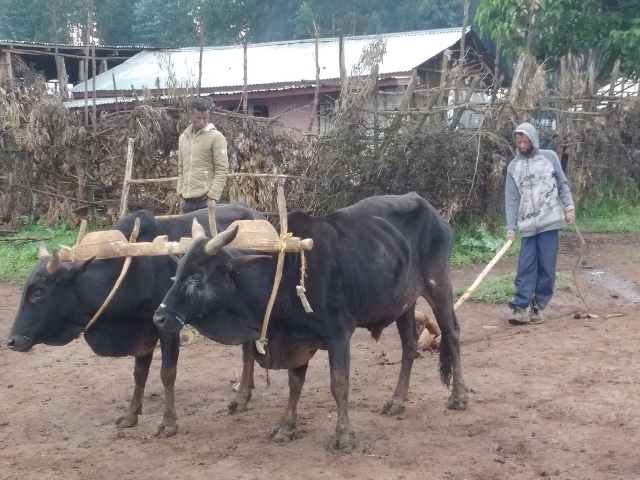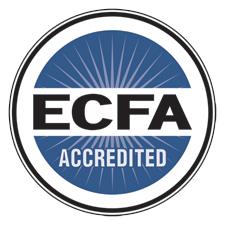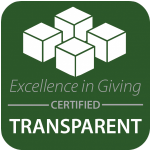Animal husbandry is one of the most effective tools in the fight against global poverty. One of the most dire needs for people living in poverty is hunger. Hunger reduces productivity and energy, and increases the likelihood of contracting illness and more difficulty fighting off illness. For pregnant women, hunger can lead to a poor birth outcome for both mother and child. In children, hunger stunts healthy growth and development, and even reduces cognitive ability and performance in school. Many children often abandon their education in impoverished areas, either to help earn income or because all of a family’s income is going towards food costs.
Animal husbandry sustainably alleviates these concerns in the short and long term. That’s why Agriculture and Animal Husbandry is one of Children’s HopeChest’s 12 Areas of Transformation. Domesticated animals like chickens, sheep, cows, and pigs all require day-to-day care, but can provide multiple ways for their caretaker to acquire income! All of these strengthen not only the financial stability of the caretaker, but also the economy of the local community.
Animals are often used for their meat to alleviate hunger in the short term. However, by taking care of animals in the long term, animals produce other products and can be utilized in other ways. Some animals produce milk or eggs, which can be extra nutrition or income for the caretaker. Sheep produce wool, which can be sold for profit and made into products to sell in marketplaces. Cows can be used to help pull farming equipment and complete agricultural tasks more quickly and efficiently. All of these animals will naturally reproduce, giving the caretaker more animals, resources and financial security. Providing food to sell also allows others in the community to purchase their necessities at a better price, as resources aren’t as scarce.
Children’s HopeChest is often able to provide CarePoint guardians with animals or ways to acquire animals. By investing in the families and communities the CarePoint supports, we are able to work towards that community’s long term goal of child-focused, sustainable community transformation.
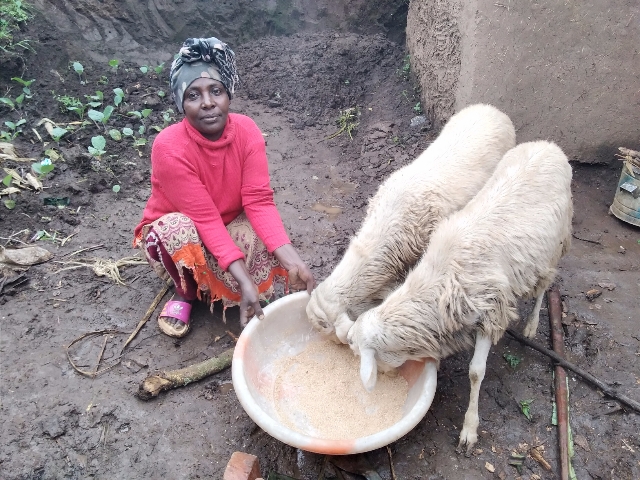
Aregashe from Ethiopia joined one of the Hossana Emanuel CarePoint’s Self-Help Group in order to gain some financial literacy. She started with money for seeds, and was able to earn enough money to buy a sheep that gave birth, and now she has two healthy sheep to earn income with.
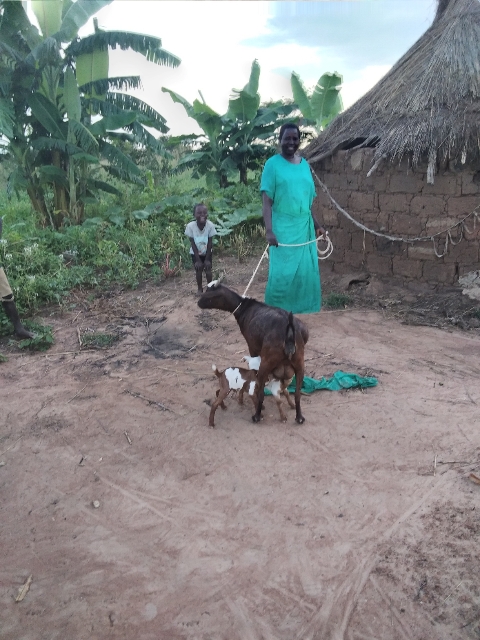
Josephine is a mother to one of the Oditel CarePoint children in Uganda. She is taking care of seven children- of which four are hers and three are grand-children. Josephine received a goat in 2018 and since then it has given birth three times. The first and the second time, she sold them to pay school fees for her children. The third time round, the goat produced twins, to Josephine’s delight! She appreciates HopeChest for the opportunity given to her to grow and develop. She has a total of 8 goats now that she’s continuing to raise until she can sell them and buy cattle.
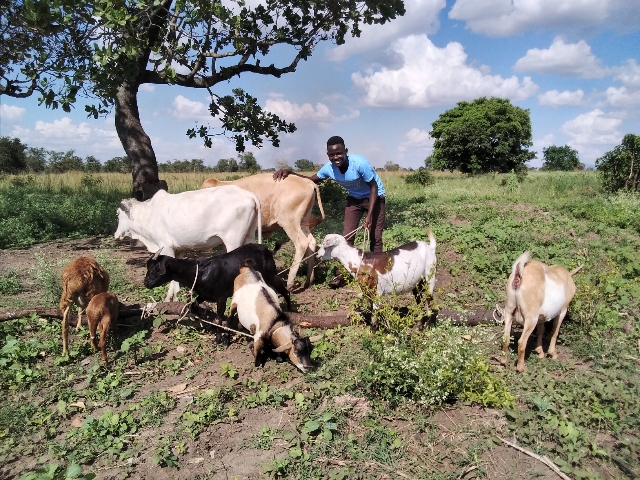
John has been attending the Adacar CarePoint in Uganda since he was very young. Before he was enrolled, he was often sad about his circumstances and felt lost or hopeless. But shortly after joining, the CarePoint had the opportunity to give all of the children their very own goat. John’s goat gave birth to twins every eight months! In just three years, he had eight goats and was able to trade some of them for cows, which have reproduced as well. He plans to continue taking good care of his animals and use the income they bring in to keep funding his education.
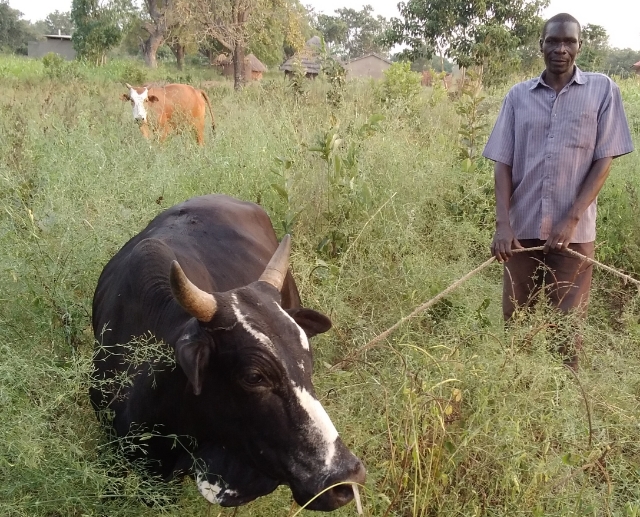
Peter is a Secretary for the management team at the Wera CarePoint in Uganda. He grew up in the surrounding community in poverty, like many others. He was an orphan, so he had limited support growing up and still struggled even as a married adult. Then, he had an opportunity to join the Good Samaritan Village Savings and Loan Association (VSLA) guided by HopeChest. This is when he says his life finally changed for the better! Peter was able to borrow money from the group to buy two cows, which had long been a dream of his. Peter gave the cows’ milk to his children to help their nutrition. He was also able to sell the cows’ milk to buy cassava seeds, and use the cows’ strength to help him plow the land to plant the cassava. His crop yielded 10 bags of cassava! He was able to pay back half of his loan in one payment. Peter also says that, because of the prestige that comes from a man owning his own animals, he has earned some more respect from his community. Peter’s savings and loans from the VSLA group has now allowed him to purchase even more animals, like pigs and chickens. “Today, I see a really bright future, for me and my family,” Peter said.
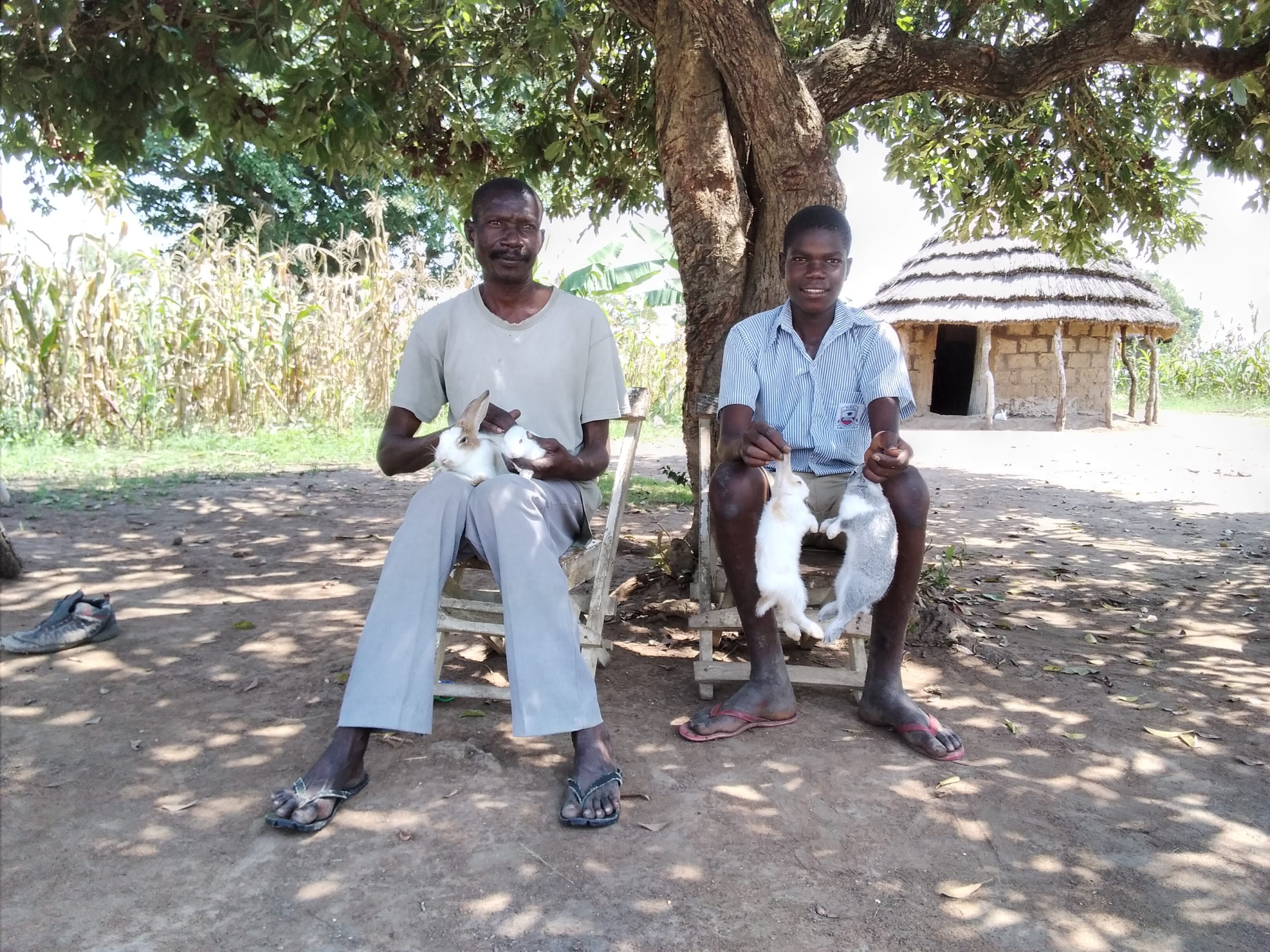
Moses and his father bought a pair of rabbits to start rearing. In just three months, they had nineteen baby rabbits around their farm! They were able to sell and trade rabbits for chickens, of which they now have over 20. They have often sold rabbits in order to acquire food, medical care, and transportation. They also used the funds for Moses’ educational fees and his school supplies. Just two rabbits were able to completely change their lives! They have since been able to purchase larger animals like goats and cows for their farm, too.
In these stories, we can see how animals can be used by God to create amazing transformation in people’s lives! Not only can hope be restored to those who need support, but the dignity and pride that comes from having the ability to be independent and provide for their families. Generational change is created this way, as the children of these families will have more opportunities and will not struggle for their necessities.
If you’d like to see current HopeChest animal husbandry projects that you and your community can get involved with, click here!

